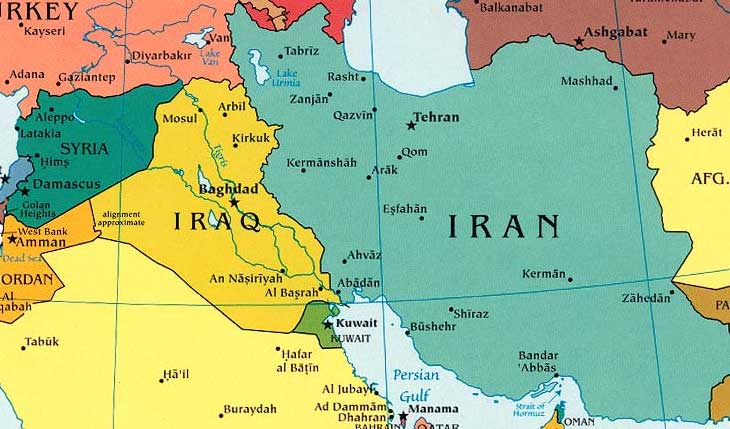.@ToHoldAQuill. @Wikileaks. @Contributoria. @ClubOfINFO. #4thEstate. #StopTheNSA.
This article is being printed here because it delivers a powerful point in the debate on whether today's radically advanced technology results in a form of unassailable tyranny when coupled with the state.
"Journalism is publishing something someone does not want published."
George Orwell
Without journalism, democracy could not exist. The Fourth Estate's ability to check abuses by those in power is the last line of defense between us and tyranny. But this ability is under threat, and may soon -- barring some innovative breakthrough in secure computing -- disappear entirely.
The printing press created journalism. We take the press for granted today, but 500 years ago, Gutenberg's invention was as novel as the Internet, and equally disruptive. For the first time, mass communication across great distances was possible. Revolutionaries like Martin Luther seized on this new power to report on -- yes, report on -- the extreme abuse of power by the imperial power of his day, the Catholic Church.
It is no coincidence that America's Founding Fathers -- themselves revolutionaries against an imperial power -- enshrined this technology in the First Amendment to their Constitution. Without the printing press (and the rifle; but that's another article) the American Revolution could never have happened.
Without the printing press, we would still be living in the Dark Ages.
Like all disruptive new technologies, the printing press redistributed power. By automating the work previously done by scribes, the press drastically lowered the cost of copying -- and thus spreading -- information. A small number of people with modest wealth (needed for the purchase and maintenance of a printing press) could trumpet a new idea far and wide. The press took the power concentrated in the hands of the few (clergy, nobility) and gave it to the people.
That power gave the people a voice -- and what's more, a voice resilient to censorship. A printing press is a physical, decentralized machine that can easily be hidden in a basement or a barn. If a tyrant wishes to prevent the spread of an idea, he must send soldiers to confiscate or destroy the printing presses. And then what about all the printed copies? He must also find a way to destroy all those books as well. This might involve, as it did under Hitler in 1930s Germany, whipping the public into a frenzy so that they throw their books onto bonfires in the street. But even then, a few printing presses will survive, and many readers will still keep their books.
It is not impossible to censor the press in a dictatorship. It can and has been done -- but at great expense and with much difficulty.
George Orwell once noted [1] (H/T to Jay Stanley at the ACLU [2]) that:
“ages in which the dominant weapon is expensive or difficult to make will tend to be ages of despotism, whereas when the dominant weapon is cheap and simple, the common people have a chance. Thus, for example, tanks, battleships and bombing planes are inherently tyrannical weapons, while rifles, muskets, long-bows and hand-grenades are inherently democratic weapons.”
Technology determines political and social organization. It has been frequently observed, for instance, that the invention of the stirrup made medieval feudalism posible. By giving cavalry the ability to stand up in the saddle, this startling, disruptive new technology created an entirely new class of warrior who required a great deal of expense to maintain. The reorganization of European society into a feudal system occurred, in part, because of the invention of the stirrup.
The printing press, we may conclude, is a democratic technology. But the printing press is now obsolete, replaced by the Internet.
At first glance, the Internet would appear to be the ultimate democractic technology -- even more so than the printing press. Indeed, when the Internet was first invented, journalists and activists hailed it as the greatest tool for freedom and democracy in the history of mankind. It has lowered the cost of copying and transmitting ideas to practically zero. One voice can trumpet a new idea far and wide. Marginalized voices dispersed around the world can come together in common cause. How can this possibly be a bad thing?
Because the cost of seeking out and destroying ideas has also sunk to practically zero.
Let's go back to our Orwell test. Is the Internet cheap and simple? Or complex and expensive?
Cheap and simple to use, yes. To publish. To copy. But from the Internet rises two columns of power out of reach of everyday man: The power of Big Data, and the power of the zero-day exploit.
The ACLU's Jay Stanley delves deep [3] into the Big Data issue, so I won't dwell on this point too much. Suffice it to say, Big Data -- and mass surveillance in general -- is not about protecting the people from outside threats (“terrorists,” “Communists,” “hackers”), but about protecting the state from the people. It's about identifying and suppressing dissent. It's about social control.
But even if, by some political method, we were able to destroy the data silos and end mass surveillance (an unlikely prospect), there remains no solution to the zero-day problem.
People who have never written code or dug into how the Internet works are often baffled by this. My computer got hacked because of buggy code. So fix your code! Programmers and computer scientists know better.
Forty years of computing have proven that imperfect humans create imperfect computers. Code without bugs does not exist. Programmers make mistakes. And those mistakes -- in the form of zero-day exploits -- scale at a global level. A nice little zero-day in Windows or Android gives you control over most of the world's computer users. Security experts today counsel "assume breach." You must assume your computer network or system has been breached by an attacker who means you harm: An enemy who wants to spy on you, sabotage your data, or even destroy your data completely.
Security is the Internet's Achilles heel.
One need only understand how email works -- unencrypted text copied dozens of times from point A to point B -- to see the potential for abuse. People like Richard Stallman have been complaining about NSA spying since the 1970s. Edward Snowden's revelations have finally brought to the public consciousness what programmers and sysadmins have known since the Carter administration.
If the Internet, and computers in general, were secure, unhackable, encrypted in a manner impossible to crack -- a perfect world, that is -- then the Internet would be that utopia of freedom and democracy.
But this is not the case, nor will it ever be the case.
Worse, the market for zero-days is brisk, as governments and corporations scramble to bid ever higher the cost of the latest expoit. This power remains out of reach of the common man, and centralizes power in the hands of those who mean us harm. And that power will be used to silence dissent, shut down leaks, harass journalists, and even prevent/disrupt the publication of unwanted information.
It has been a commonplace observation, in the wake of the Snowden revelations, that when journalists can no longer securely communicate with their sources, journalism suffers. So far as it goes, they are right. But the truth is far worse.
What the Internet gives us in ease of copying and sharing information takes away from us in the impermanence of that information. Information on the Internet can too easily be found, monitored, and destroyed. The ability to censor -- and, indeed, to rewrite history -- has never been more real and immediate.
Journalism isn't over just because we can no longer communicate with sources in a secure manner. Journalism is over because spies can -- in real-time and retroactively -- destroy our work and literally re-write history. The impermanence of information on the Internet makes this trivial -- and as writing and consumption of writing moves increasingly into the digital realm, the ability to expunge an idea becomes more and more complete.
Some will argue, at this point, that journalism is not dead. Look at the great work Glenn Greenwald is doing...with great difficulty and at high cost. The Internet may have lowered the cost of publication but has dramatically increased the cost of doing quality, Fourth Estate, national security journalism.
The Internet, like the printing press before it, has redistributed power. In this case, from the people to the security apparatus, who have the power to spy on and disrupt our communications. As a result, we now live in totalitarian dictatorships run by spies, with a thin veneer of vestigial democracy to keep society ticking along, worker bees humming to the hive every day. The only check on the power of the spies is the need to operate on the principle of plausible deniability -- they cannot act openly against their enemies.
Yet.
The time is coming when this pretense will no longer be required. A manufactured crisis, a false flag attack -- most likely a cyber-attack that damages the financial system; the people will rise up in alarm and demand to be “protected” from this threat -- and the spies will be able to impose martial law on the Internet. The Great Star-Spangled Firewall of America will protect us from both Chinese hackers and uncomfortable truths.
Remember, on the Internet, journalism is no different from spam or child pornography or cyberwar. It's all zeroes and ones. It's all data. And it can be filtered, blocked, and destroyed with ease.
Once this happens, once martial law on the Internet is complete, once no email, no blog post, no tweet traverses the Internet without the permission of the government, then the power of the security apparatus will be total, and they will be free to kidnap, interrogate, torture, imprison and murder at will. To think that such awesome power will not be misused -- that any human being can be trusted with such power -- is naive.
You could argue, this hasn't happened yet, why should we expect it to happen? What about our democratic principles? What about our long tradition of democracy?
In times of great technological disruption, predicting the future is hard. However, certain timeless rules of human nature remain constant.
Power corrupts. Always, eventually, power corrupts.
One need only ask, how can this power be misused? And then you will know the future. Could be next year, could be ten years from now, could be fifty. But possibility is necessity. In the absence of a real check on power, you should always assume that power will be misused.
Remember the stirrup. Technology redistributes power and alters the social and political fabric. And the Internet is a technology that has tyranny baked in from day one.
The unthinkable can and will happen, and in our lifetimes. Power always corrupts eventually, and the power the Internet affords is so awesome, so unbelievable, that it is naive in the extreme to think that it will not be used for evil.
The Internet is hurtling us into a new Dark Age, such as mankind has never before seen, and far worse than the one the printing press helped us escape. History, as Oswald Spengler reminds us, is a form of tragedy, and we, the last free generation, can do little more than gaze in horror as our fate approaches, powerless to stop it.
Footnotes
[1] http://georgeorwellnovels.com/essays/you-and-the-atom-bomb/
[2] https://www.aclu.org/blog/technology-and-liberty/big-data-george-orwell-and-tanks
[3] https://www.aclu.org/blog/technology-and-liberty/big-data-george-orwell-and-tanks
By J. M. Porup - More articles by J. M. Porup
Originally published at Contributoria on 1 February 2014



















